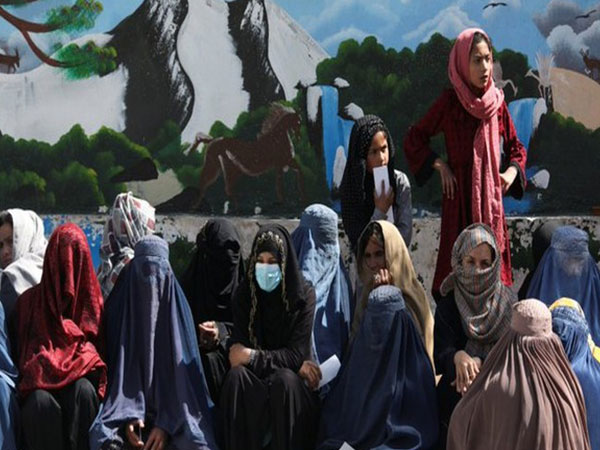
Kabul: Highlighting the situation of Afghan women in prisons in a recent report, the United Nations has said that the women who are under confinement are having a detrimental impact on their health, Khaama Press reported.
Representatives from the Office of Drug Control and Crime Prevention and the Women's Division of the United Nations have emphasised the detrimental impact of incarceration on the lives of women in Afghanistan, including those who are both incarcerated and struggling with substance addiction. They have underscored the need to address the negative consequences of imprisonment, both during and after confinement, for women in the country.
On Monday, the United Nations Women's Agency released a joint statement with the Office of Drug Control and Crime Prevention of the United Nations regarding the situation of incarcerated women in Afghanistan.
Writing in Khaama Press, author Tabassum Nasiry underlined that the joint statement emphasises their common concern and commitment to improving the circumstances of women in Afghan jails.
The report has been released following discussions between Alison Davidian, the United Nations Special Representative for Women and Anubha Sood, the Representative of the Office of Drug Control and Crime Prevention, regarding incarcerated women in Kabul.
According to the survey, the majority of jailed women in Afghanistan express concerns about their children's future and the impact on their families, prompting them to seek chances to learn new skills in order to support themselves and their families, Nasiry wrote.
The UN Women's Division and the Office of Drug Control and Crime Prevention highlighted feelings of insecurity within prisons and worsening mental and physical health conditions, social ostracisation due to their status as prisoners, and long-term effects on their children, according to Khaama Press.
The declaration intends to give jailed women and those moving from drug treatment programmes protection, vital healthcare treatments, and reintegration assistance.
The UN Special Representative for Women emphasised the organisation's objective of ensuring that jailed women get support both during their incarceration and after their release in order to encourage their engagement in society, Khaama Press reported.
More than two years have passed since the Taliban banned girls from studying beyond sixth grade in Afghanistan, and there is no sign of reopening the schools to girls studying above sixth grade.
Since the Taliban took over Afghanistan in August 2021, they have issued several decrees that impose restrictions on women. Afghanistan's women have faced numerous challenges since the Taliban returned to power. Girls and women in the war-torn country have no access to education, employment and public spaces.